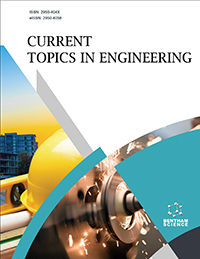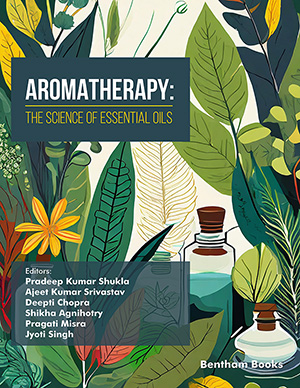
Abstract
Over the past few centuries, life-saving tools have been extensively used across the globe. The use of medical devices has increased adverse events associated with them. Materiovigilance is the process of identifying, collecting, reporting, and examining unfavorable events connected to medical devices in order to prevent the recurrence of such occurrences. Several countries keep an eye on medical products once they are commercialized. Other nations with similar programs include France, Australia, and the United Kingdom, in addition to the Medical Device Reporting (MDR) programme in the United States. This article addressed how some types of medical equipment might be dangerous and how a Materiovigilance programme is essential.
This page provides information about how to report adverse reactions to these medical devices, as well as what they are.
In many countries, post-marketing surveillance for medications has been initiated but is not as reliable and advanced as it is today. By monitoring adverse events related to medical devices, generating safety data, educating stakeholders, and recommending appropriate procedures and interventions, the Indian Pharmacopeia Commission established the committee on July 6, 2015.
Monitoring adverse events related to medical device usage can increase patient safety. On the basis of safety data gathered and generated, the Central Drugs Standard Control Organization (CDSCO) will make recommendations about the safe use of medical devices in the Indian population.
Keywords: Materiovigilance, Medical device, MvPI, Post marketing, Adverse Events, Health care safety.
Current Indian Science
Title:Materiovigilance as a Health Care Safety in India: A Regulatory Prospective
Volume: 2
Author(s): Vaishali Gutte, Shoaeb Mohammad Syed*Wajed Chaus
Affiliation:
- Department of Pharmaceutics, Dayanand College of Pharmacy, Latur MS 413512, India
Keywords: Materiovigilance, Medical device, MvPI, Post marketing, Adverse Events, Health care safety.
Abstract:
Over the past few centuries, life-saving tools have been extensively used across the globe. The use of medical devices has increased adverse events associated with them. Materiovigilance is the process of identifying, collecting, reporting, and examining unfavorable events connected to medical devices in order to prevent the recurrence of such occurrences. Several countries keep an eye on medical products once they are commercialized. Other nations with similar programs include France, Australia, and the United Kingdom, in addition to the Medical Device Reporting (MDR) programme in the United States. This article addressed how some types of medical equipment might be dangerous and how a Materiovigilance programme is essential.
This page provides information about how to report adverse reactions to these medical devices, as well as what they are.
In many countries, post-marketing surveillance for medications has been initiated but is not as reliable and advanced as it is today. By monitoring adverse events related to medical devices, generating safety data, educating stakeholders, and recommending appropriate procedures and interventions, the Indian Pharmacopeia Commission established the committee on July 6, 2015.
Monitoring adverse events related to medical device usage can increase patient safety. On the basis of safety data gathered and generated, the Central Drugs Standard Control Organization (CDSCO) will make recommendations about the safe use of medical devices in the Indian population.
Export Options
About this article
Cite this article as:
Gutte Vaishali, Syed Mohammad Shoaeb*, Chaus Wajed, Materiovigilance as a Health Care Safety in India: A Regulatory Prospective, Current Indian Science 2024; 2 : e2210299X282463 . https://dx.doi.org/10.2174/012210299X282463240118113902
| DOI https://dx.doi.org/10.2174/012210299X282463240118113902 |
Print ISSN 2210-299X |
| Publisher Name Bentham Science Publisher |
Online ISSN 2210-3007 |
Call for Papers in Thematic Issues
Advancements in Sustainable Synthesis and Material design towards Greener Chemistry
The thematic issue "Advancements in Sustainable Synthesis and Material design towards Greener Chemistry" explores innovative approaches towards environmentally sustainable practices in organic synthesis and material development. It encompasses a broad spectrum of research, including the design of green synthesis methods that minimize waste and energy consumption, the utilization of renewable ...read more
Recent Advances in Green and Sustainable Developments
To save our loving ‘Mother Nature’ from the ever increasing chemical pollution scientists are continuously modifying their chemical processes to make them sustainable. As a result, last decade has shown a tremendous outburst in modifying organic transformations by following green credentials. On the other hand heterocyclic scaffolds are very important ...read more
Thematic Issue on Unleashing the Potential: Diverse Therapies and Innovative Drug Delivery Systems for Targeting Different Diseases
Delivery systems for drugs have the potential to revolutionize the treatment of various diseases by enhancing drug efficacy, improving patient compliance, and reducing side effects. Review articles focusing on recent approaches and therapeutic applications of these systems can provide valuable insights to researchers and healthcare professionals. The aim of the ...read more
 14
14
- Author Guidelines
- Graphical Abstracts
- Fabricating and Stating False Information
- Research Misconduct
- Post Publication Discussions and Corrections
- Publishing Ethics and Rectitude
- Increase Visibility of Your Article
- Archiving Policies
- Peer Review Workflow
- Order Your Article Before Print
- Promote Your Article
- Manuscript Transfer Facility
- Editorial Policies
- Allegations from Whistleblowers
- Announcements
Related Articles
-
Synthetic and Biological Attributes of Pyrimidine Derivatives: A Recent Update
Current Organic Synthesis Rho-kinase (ROCK) Inhibitors - A Neuroprotective Therapeutic Paradigm with a Focus on Ocular Utility
Current Medicinal Chemistry Plant-derived Glycosides with α-Glucosidase Inhibitory Activity: Current Standing and Future Prospects
Endocrine, Metabolic & Immune Disorders - Drug Targets A Medicinal Chemist’s Perspective Towards Structure Activity Relationship of Heterocycle Based Anticancer Agents
Current Topics in Medicinal Chemistry Synthetic and Biological Aspects of Thiadiazoles and their Condensed Derivatives: An Overview
Current Topics in Medicinal Chemistry Exploration of Some Thiazolidine-2,4-dione and 2-Oxoindoline Derivatives Incorporating 3,4,5-Trimethoxybenzyl Moiety as Novel Anticancer Agents
Letters in Drug Design & Discovery Computer-aided Design of Wide-spectrum Coronavirus Helicase NSP13 Cage Inhibitors: A Molecular Modelling Approach
Current Computer-Aided Drug Design A Role for the Anti-Inflammatory Properties of Tetracyclines in the Prevention of Acute Lung Injury
Current Medicinal Chemistry Synthesis of Novel Imine Stilbene Analogs Exhibiting Potent Anticancer Activity
Anti-Cancer Agents in Medicinal Chemistry Mechanisms Involved in the Genesis of Diabetic Nephropathy
Current Diabetes Reviews Computational Techniques for Drug Repurposing: A Paradigm Shift in Drug Discovery
Current Drug Therapy Voltage-Dependent Sodium Channel Blocker Anticonvulsants: An Approach to the Structure-Activity Relationship
Medicinal Chemistry Potential Immunotherapy against SARS-CoV-2: Strategy and Status
Coronaviruses Curcumin Nanomicelle Improves Lipid Profile, Stress Oxidative Factors and Inflammatory Markers in Patients Undergoing Coronary Elective Angioplasty; A Randomized Clinical Trial
Endocrine, Metabolic & Immune Disorders - Drug Targets COVID-19 Effects on Geriatric Population and Failures of Aminoquinoline Therapy: Compilation of Studies from EU, USA, and China; Safety and Efficacy of Vaccines in the Prevention and Treatment of COVID-19
Current Medicinal Chemistry Prostate Cancer Molecular Background: The IGF-1Ec Story
Clinical Cancer Drugs Post-coronary Artery Bypass Graft Complications; Potential Causes and Risk Factors
New Emirates Medical Journal Aptamers Against COVID-19: An Untested Opportunity
Mini-Reviews in Medicinal Chemistry SCV Filter: A Hybrid Deep Learning Model for SARS-CoV-2 Variants Classification
Current Bioinformatics Exploring the Efficacy of Traditional Herbs in Combating COVID-19: A Comprehensive Review
Coronaviruses


























